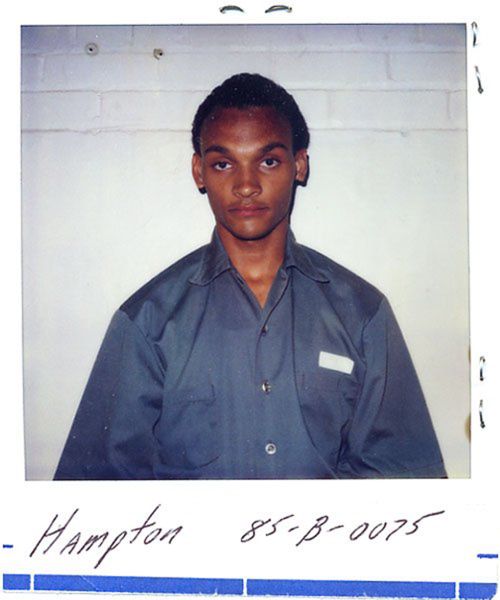
There’s a commonly held maxim that claims a direct correlation between an increase in daily temperatures and the volume of crime. Put another way, when it’s hot out, people tend to get reckless. This feels especially true in New York City, where the lure of endless summer evenings seems easily translated into petty acts of deception, but there are a select few whose ambition far outstrips the realms of minor infractions.
Last week, on a muggy, overcast Monday, New York magazine dropped a ripper of a story, written by the gloriously unsparing Jessica Pressler, which tabulated the breadth of unlawful acts committed by “Anna Delvey,” a young woman with a vague backstory who tricked scores of Manhattan’s wealthiest luminaries into believing she belonged among their numbers. In a way, she did, and does. In ravenous detail, Pressler chronicled how Delvey (real name Sorokin) vaulted herself into celebrity-lousy dinner parties and $4,500 personal training sessions using not much more than an uncanny ability to telegraph the intimation of vast wealth. All the while, Pressler writes, Delvey doggedly maintained a blandly authoritative persona that stultified rather than beckoned.
How, in the century of digital ubiquity, did a woman from blue-collar Germany manage to convince famed art collectors, notorious playboy editors, prominent lawyers and upscale hotel employees that she was the proprietor of enormous assets and the daughter of a titan of industry? In a word, networking. Also, grand larceny.
Making her way methodically from one well-connected acquaintance to another, Delvey stitched herself a glimmering net of sympathetic friends to catch her whenever her facade slipped. Given that she was coasting on payouts from bad checks and hastily withdrawn loan applications, the facade happened to slip quite often. During one particularly harrowing incident at an upscale resort in Marrakech, Delvey’s credit cards failed when the time came to pay her bill. Her friend, a photo editor at Vanity Fair who Delvey had invited along, was forced to put $62,000 on the credit card she used for work expenses. Delvey never repayed her.

The reaction to Pressler’s story was immediate and exultant. “We are all Anna Delvey,” gushed an i-D op-ed. “Screw the higher-ups, dumb hotels and idiotic banks. Anna is a genius,” Neffatari Davis, a filmmaker who interacted with Delvey while working as a concierge at the SoHo hotel 11 Howard, wrote on Twitter. “When you hear these kinds of stories, you inevitably find yourself sympathizing with the grifter, and kind of not sympathizing so much with the people who got grifted, even though it should be the other way around,” said Anna Khachiyan, critic and co-host of the podcast Red Scare, in an interview with i24 news. “I have to give her some credit. She’s a downtown Robin Hood-like figure who was stealing from the rich and giving to the poor.” Indeed, Delvey made a habit of handing out $100 bills to Uber drivers and hotel employees. “She’s redistributing the wealth one $100 bill at a time,” quipped Khachiyan.
Delvey might be the hottest scammer in New York right now, but her simultaneous infamy and popularity is certainly not novel. Observer’s 2009 exposé of the so-called “hipster grifter” inspired an equally potent blend of shock and admiration among metropolitan media types who thrilled at the bravado of this seemingly innocuous antihero. At the heart of these scammer phenomenons is the undeniable rush of crowing superiority one feels when reading about the ease with which wealthy individuals and intimidating institutions were duped. The grifter, inherently morally bankrupt and willing to stop at nothing to insert herself into an aspirational lifestyle, serves as a perfect projection of the tempting human desire to allow greed and vicious social aspiration to rule your every act.

Dishonest people have been exploiting the kindness and naiveté of their unwilling victims since time immemorial, but the NYC-associated grifter figure has a profoundly particular way of reflecting the cultural and political moment they operate in, with regards to the scale of the crimes being committed and the extent to which the public is willing to be sympathetic. Delvey, with her charm that captured denizens of the arts and almost supernatural ability to draw money out of thin air, scans as the patron saint of bullshit in an America that’s increasingly under the sway of liars, sycophants and explicitly hateful apostles of backward ideology.
More than three decades ago, under the looming threat of nuclear war and the paternalistic conservatism of the Reagan ethos, another young hoaxer named David Hampton was testing the limits of his ability, and Connecticut College undergraduate Tom Smith was working as a house fellow in a six-story dorm, one of several that were situated on campus.
In 1983, Connecticut College had no RA system, so it was Smith’s responsibility to act as the administrative overseer for the entire building, which during any given academic year would serve as home to approximately 140 students. It was one of these students who, on an otherwise uneventful weekend, informed Smith that a person who said he was the son of actor Sidney Poitier had arrived on campus and taken up residence in the basement.
“It was a potential administrative problem,” Smith told Observer. But at Connecticut College, which often played host to the children of celebrities and wealthy metropolitan families, the arrival of the offspring of a famous actor didn’t raise any initial red flags. “I did meet with him, and he was a very polished, very well-spoken, handsome light-skinned black guy,” said Smith. “It was pretty easy to believe he was who he said he was.”
Hampton, who was of course then claiming his name was Poitier, further convinced Smith of his legitimacy via his relationship with a group of students living in the dorm under Smith’s jurisdiction. “There was a group of guys that lived on the first floor,” said Smith. “These guys were New Yorkers, and they were seniors, and seemed to have an incredible amount of friends who visited them frequently. These guys confirmed who [Hampton] was, because one of them had a brother at Harvard who confirmed who [Hampton] was, and [Hampton] had just come from Harvard.”
The man pretending to be the son of Sidney Poitier asked to address Smith’s students during a scheduled dorm meeting. He told Smith that his father was interested in filming a movie, Dreamgirls, on the Connecticut College campus. Smith had reservations, but ultimately agreed, because the New York students had assured him that Hampton was the real deal. The meeting began, Hampton started to speak, and almost instantly Smith realized something was very wrong.

“[Hampton] got up in front of the dorm and said that there would be roles in his father’s movie for people on campus. He’s going on and on, and I’m getting less and less happy. There was something about it I didn’t love. I could see the kids getting super excited, and I remember being uneasy about it. And this is where I failed them,” Smith said. “[Hampton] said, ‘I’m not going to need all of you, I need just some of you.’ And then he pointed out the people he’d need. He pointed out 15 to 18 people out of 80, the best looking people in the dorm. We’re not supposed to walk into a room and single out the best looking people, but he did it. That’s when I lost it. That’s when I thought, ‘This is over.’ [Hampton] created an instant divide, and everyone in the room knew what had just happened.”
Smith was furious. Out of the ether, out of absolutely nowhere, here now stood a person who was promising fabulous opportunities only to the students who physically made the grade. The next morning, he reported Hampton, and in record time campus security had escorted him from campus. The cynicism and cruelty of Hampton’s evaluation bothers Smith to this day. “I couldn’t undo what he had done, which was quite clearly separate the dorm into a hierarchy that was normally left unsaid, and that was very hard to repair,” he said. “It was my job to be the oldest, smartest, and wisest person in the room, and protect these people from that kind of harm. Not only did I fail to do that, I set it up. The fact that [Hampton] was very good at what he was doing was little comfort.”
Hampton’s ruse hadn’t fooled anyone at Connecticut College for long, but still, he made use of his visit, stealing an address book belonging to one of the New York students: a young man named Robert Stammers who attended Andover Academy with the children of illustrious New Yorkers such as Osborn Elliott and John Jay Iselin, both of whom would fall victim to Hampton’s hoax shortly afterward.
Osborn Elliott’s widow, Inger McCabe Elliott, a storied Manhattan entrepreneur and artist, described her encounter with Hampton in vivid detail to the Washington Post. Hampton had appeared on her Upper East Side doorstep claiming to be in trouble and a friend of her son, and asked to spend the night. Elliott agreed, and the following morning was shocked to see Hampton in bed with another man; two total strangers had somehow gained access to her home.
Elliott, now 85, discussed the incident with Observer. “I have no idea how he came across my horizon, but once I discovered that he wasn’t who he said he was, I got rid of him,” she said. I asked what compelled Elliott to allow Hampton to spend the night, expecting her to be embarrassed. “We had a lot of children, and someone needed a bed,” she said simply. “We were very generous people.”
Hampton didn’t have the benefit of an ever-present Internet clogged with gossip-obsessed readers, and therefore he missed out on the instant-folk-hero ascent that’s been afforded to Anna Delvey. He spent 21 months in prison, and his story was spun into a play that received an eventual film adaptation starring Will Smith, but he died alone of AIDS-related complications in 2003 at the age of 39. He was able to gain access to wealthy groups of people by creating Ivy League-caliber references, and once he found his footing within the confines of the desired bracket, he afforded himself further social authority by giving voice to unspoken tensions within the group. Exactly like Hampton, Delvey was at her best when she used her considerable social instincts to create elite, meticulously curated VIP scenes (dinner parties, proposed Soho House-like clubs), because both grifters understood that the only way to truly seduce powerful people is to convince them that their societal survival is dependent on you.
“Grifters,” said Smith, “are incredibly charming and confident. He was really remarkably gifted at making people feel special.” In 1983, exactly two decades before Mark Zuckerberg crashed Harvard servers with a slapdash ‘Hot or Not’ game thrown together while he was drunk and bored, David Hampton captured the rapt attention of a room of Connecticut College undergrads by offering the possibility of attention and status only to those who measured up. In one succinct speech, he claimed the question that would eventually generate social media and alter the world beyond all recognition: who among us is truly unique?
Two years before his death, Hampton went out with a man named Peter Bedevian, who recalled that the two shared a night filled with lively discussion of Billie Holiday and post-9/11 ennui before Hampton left to go to the bathroom and never came back, leaving Bedevian to pay the $423 tab. Despite this betrayal, Bedevian came away feeling sanguine about the evening. “Honestly?” he told the New York Times. ”It was one of the best dates that I ever went on.”

